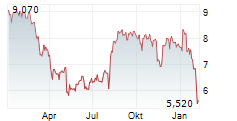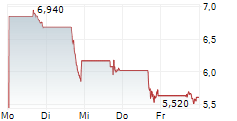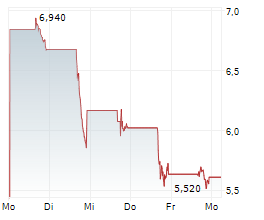Study shows modest increases in business travel spending deliver strong returns, with just £94 more per employee needed to reach optimal levels.
Companies in the United Kingdom could unlock over £319 billion in additional sales by increasing their strategic investment in business travel. Despite a steady recovery since the pandemic, current travel and expense (T&E) spending still falls short of the level needed to maximise revenue and profitability even when considering COVID-era investments in virtual meeting platforms. The research finds that a 9.7% increase in T&E spending could yield an 8.1% rise in sales for UK-based companies.
These are some of the findings from a new report T&E and the Bottom-Line: Quantifying the Return on Investment of UK Business Travel an inaugural study for the UK market released today by the Global Business Travel Association (GBTA).
Despite a strong post-pandemic recovery, the report finds that UK business travel spending remains £1.2 billion below its 2019 peak. The analysis shows that aligning T&E investment with optimal levels would yield a 13.8x return-translating to £13.80 in net operating margin for every £1 invested in business travel.
"This study challenges the notion of business travel as a discretionary expense. Especially in times of uncertainty or economic pressures, UK organizations should ensure that they are optimizing their business travel as a strategic catalyst for growth. Business travel and in-person meetings boost corporate performance, deepen relationships, and spark innovation and we see here that even modest increases in investment can yield substantial returns," said Suzanne Neufang, CEO, GBTA.
For 2024, the economic data shows that UK business travel spending reached £40.3 billion, still £1.2 billion below its 2019 peak, despite the past years' increasing use of virtual meetings.
Through the analysis of 24 years of current and historical data (2000-2024) across 14 major UK industries, the GBTA UK ROI study also highlights:
- The Investment Gap. UK firms currently spend £32.5 billion on business travel. The profit-maximising level is £35.6 billion-about £3 billion higher.
- High Returns. A 9.7% increase in T&E spending could yield an 8.1% increase in sales, delivering £54 billion in additional net operating margin.
- Per-Employee Impact. Just £94 more per employee in T&E could help firms reach optimal investment levels.
- Sector-Specific Opportunities. Real Estate, Manufacturing, and Information Communication sectors show the largest gaps between current and optimal travel spend, with potential sales gains of £35 billion, £46.7 billion, and £23.5 billion respectively.
- Efficiency Gains. While UK T&E spending has continued to rise 5.4% annually since 2000, companies have been gaining efficiencies in generating more revenue per travel pound spent. However, for the same period, business travel's share of total sales in the UK declined from 1.1% to 0.8%. So although UK companies may have gained efficiencies, continued T&E investment is needed to drive additional growth.
- Resilience and Strategic Value. The study also highlights that firms maintaining or increasing travel during downturns-such as the COVID-19 pandemic-tend to recover faster and outperform competitors. Business travel supports a wide range of high-value functions, from sales and client engagement to innovation and team development.
For more information and to access the full report T&E and the Bottom-Line: Quantifying the Return on Investment of UK Business Travel visit the web page here.
Today, GBTA also simultaneously released a similar study outlining the ROI of business travel in the United States which found a $2.4 trillion sales opportunity through an 8.3% increase in T&E spending read more here.
In the coming months, GBTA will also release additional follow-up reports that will provide insights specific to corporations and across industries, as well as on the impact of managed travel and role of travel management companies.
METHODOLOGY
GBTA's analysis models industry sales as a function of several core revenue drivers-including product or service demand, capital investment, input costs, travel prices, and business travel expenditure (T&E). These additional variables were included to control for their effects, enabling GBTA to isolate the incremental contribution of business travel. All data was adjusted for inflation prior to modeling, and GBTA's estimates are based on a panel dataset spanning 2000 to 2024, covering 14 major UK industries and the aggregate economy.
ABOUT GBTA
The Global Business Travel Association (GBTA) is the world's premier business travel and meetings trade organization serving stakeholders across six continents. GBTA and its 9,000+ members represent and advocate for the $1.48 trillion global business travel and meetings industry. GBTA and the GBTA Foundation deliver world-class education, events, research, advocacy, and media to a growing global network of more than 28,000 travel professionals and 125,000 active contacts. For more information, visit GBTA.org and GBTAFoundation.org.
View source version on businesswire.com: https://www.businesswire.com/news/home/20250710836587/en/
Contacts:
MEDIA INQUIRIES:
Fintan Hastings, GBTA PR Communications, EMEA APAC, fhastings@gbta.org, press@gbta.org
Fire On The Hill PR, gbta@fireoth.com



